Connect
HOW BARRE3 SUPPORTS YOUR MENTAL HEALTH
Today is World Mental Health Day, a day observed to promote mental health education and advocacy. At barre3, a large part of being balanced in body and empowered from within comes from how we feel in our minds, and with each class, we move further along in that journey toward physical, mental, and emotional balance.
To learn exactly how barre3 supports your mental well-being, we spoke with Gloria Han, a doctoral candidate in Clinical Psychology at Vanderbilt University and a certified barre3 instructor.* Below, Gloria shares what it is about barre3 that leaves you feeling calmer, happier, connected to others, and more grounded in yourself.
BARRE3: How does the language instructors use in the barre3 class support our mental health?
GLORIA HAN: The messaging infused in barre3 is consistent with principles that mental health professionals are often minded toward. Asking clients to tune into their bodies and to modify dependent upon how they’re feeling empowers them to take actions that reflect their own best interests. In the mental-health professional community, we call that skill assertive communication or assertive behavior.
One of the most challenging things to master is finding the balance between standing up for yourself and honoring your environment. When instructors encourage clients to modify, they’re helping them practice and build that muscle of assertive behavior.
Another thing that’s consistent between the language used in barre3 and mental health literature is the emphasis on regulation versus reaction. Combo work is a great example of this. We’re slowing down and cueing breath in sync with our movements, and we’re asking clients to stay with and breathe through what’s happening. This gives them space to tune into their environment and the sensations in their body.
BARRE3: Beyond the workout itself, how does barre3 improve mental well-being?
GH: Mindful and low-impact movement, whole-food nutrition, and a supportive social community are the three things that mental-health professionals generally turn to as universal factors that promote positive mental health. All three of these are present within barre3’s overall mantra.
There’s also an active area of research looking at how advancements in technology and the pace of computing and social media affects our attention reserves. At work, people are required to shift their attention far more often than was necessary 10 or 20 years ago. As we shift from task to task, our attention spans are waning as a result.
Making it a habit of committing to an hour-long barre3 class can mitigate the wear and tear this plays on our attention. This is important for mental health, because those attentional resources are often the gatekeeper of adaptive emotion regulation and enhance our ability to manage and regulate the natural stresses that come up throughout our day.
BARRE3: How does barre3 improve clients’ mood both in the short- and long-term?
GH: Physiologically, exercise provides an endorphin boost, making it common to experience a lift in mood. If you’re feeling like your mind is in a haze or your thoughts are scattered, the intentional hour of mindful movement that the barre3 class brings will help to clear your mind.
In the mental health professional community, we also put a lot of emphasis on the benefit of forming healthy habits. Barre3 is a workout with positive psychological skills scattered throughout, and if you make it a habit, you’re developing a long-term, positive, health-promoting behavior.
BARRE3: When someone is facing mental health challenges, it can be hard to try something new. How can someone feel comfortable trying barre3 for the first time?
GH: Finding ways to move in the direction of your values ensures that you are headed toward a full and meaningful life. At barre3, you’re always welcome to take things at your own pace, and you know that even a small step forward is a step forward. Try thinking about creating a gradual hierarchy toward your goal. For example, if your goal is to be more comfortable in class and to improve your mood over time, it can be helpful to create a staircase of individual steps to reaching that goal.
Maybe the first step is telling yourself that you’ll be mindful and intentional throughout warm-up and then allow your body to take the lead for the rest of class. Each time, you’ll come back to class with the goal of adding an additional ten minutes of mindful focus and intention. This will help you trust the process and feel confident that incremental gains will lead to improvement.
For many people struggling with mental health, there’s a tendency to withdraw or avoid things that you perceive as challenging or new. The best thing you can do though, is to try the thing that scares you. Taking that first step to hop into class gives yourself a chance to be successful in boosting mood and developing a healthy habit over time.
BARRE3: If someone doesn’t have the time to take a 60-minute studio class, what is one posture that will help them experience the mental-health benefits of barre3?
GH: This varies for the individual, but for me personally, I’m all about Sumo Squats and Horse Pose. These two postures provide a wider base for your body to feel more stable and create a sensation of grounding. Sumo Squats allow for both small and large range of motion, and I find that pressing my feet into the ground while sinking into the sensation of Horse Pose is really grounding.
Overall though, I would recommend doing any posture that helps you feel grounded and successful. For some people, that may be Happy Baby one day or Child’s Pose the next. Tuning into what your body is telling you is empowering and powerful for your mood.
BARRE3: What other activities do you do to complement barre3 and promote positive mental health?
GH: I’m a firm believer that one of the key parts of a happy life is a socially-engaged brain. I like to engage in social activities as much as I can, and I make sure to prioritize time with people who are close to me.
This is another benefit of barre3: the focus on community. When someone walks into the studio, they’re never an island. They get to be a part of the class, they get to know the instructors, and they make friends at the barre. We thrive when we are steeped in community and inspired by our tribe.
Ready to experience the positive psychological effects of barre3? Sign up for a studio class or press play to an online workout today!
*Gloria is currently completing her clinical residency at Brown University and recently moved to Providence, Rhode Island from Nashville, where she was a barre3 instructor for 5 years.
Today is World Mental Health Day, a day observed to promote mental health education and advocacy. At barre3, a large part of being balanced in body and empowered from within comes from how we feel in our minds, and with each class, we move further along in that journey toward physical, mental, and emotional balance.
To learn exactly how barre3 supports your mental well-being, we spoke with Gloria Han, a doctoral candidate in Clinical Psychology at Vanderbilt University and a certified barre3 instructor.* Below, Gloria shares what it is about barre3 that leaves you feeling calmer, happier, connected to others, and more grounded in yourself.
BARRE3: How does the language instructors use in the barre3 class support our mental health?
GLORIA HAN: The messaging infused in barre3 is consistent with principles that mental health professionals are often minded toward. Asking clients to tune into their bodies and to modify dependent upon how they’re feeling empowers them to take actions that reflect their own best interests. In the mental-health professional community, we call that skill assertive communication or assertive behavior.
One of the most challenging things to master is finding the balance between standing up for yourself and honoring your environment. When instructors encourage clients to modify, they’re helping them practice and build that muscle of assertive behavior.
Another thing that’s consistent between the language used in barre3 and mental health literature is the emphasis on regulation versus reaction. Combo work is a great example of this. We’re slowing down and cueing breath in sync with our movements, and we’re asking clients to stay with and breathe through what’s happening. This gives them space to tune into their environment and the sensations in their body.
BARRE3: Beyond the workout itself, how does barre3 improve mental well-being?
GH: Mindful and low-impact movement, whole-food nutrition, and a supportive social community are the three things that mental-health professionals generally turn to as universal factors that promote positive mental health. All three of these are present within barre3’s overall mantra.
There’s also an active area of research looking at how advancements in technology and the pace of computing and social media affects our attention reserves. At work, people are required to shift their attention far more often than was necessary 10 or 20 years ago. As we shift from task to task, our attention spans are waning as a result.
Making it a habit of committing to an hour-long barre3 class can mitigate the wear and tear this plays on our attention. This is important for mental health, because those attentional resources are often the gatekeeper of adaptive emotion regulation and enhance our ability to manage and regulate the natural stresses that come up throughout our day.
BARRE3: How does barre3 improve clients’ mood both in the short- and long-term?
GH: Physiologically, exercise provides an endorphin boost, making it common to experience a lift in mood. If you’re feeling like your mind is in a haze or your thoughts are scattered, the intentional hour of mindful movement that the barre3 class brings will help to clear your mind.
In the mental health professional community, we also put a lot of emphasis on the benefit of forming healthy habits. Barre3 is a workout with positive psychological skills scattered throughout, and if you make it a habit, you’re developing a long-term, positive, health-promoting behavior.
BARRE3: When someone is facing mental health challenges, it can be hard to try something new. How can someone feel comfortable trying barre3 for the first time?
GH: Finding ways to move in the direction of your values ensures that you are headed toward a full and meaningful life. At barre3, you’re always welcome to take things at your own pace, and you know that even a small step forward is a step forward. Try thinking about creating a gradual hierarchy toward your goal. For example, if your goal is to be more comfortable in class and to improve your mood over time, it can be helpful to create a staircase of individual steps to reaching that goal.
Maybe the first step is telling yourself that you’ll be mindful and intentional throughout warm-up and then allow your body to take the lead for the rest of class. Each time, you’ll come back to class with the goal of adding an additional ten minutes of mindful focus and intention. This will help you trust the process and feel confident that incremental gains will lead to improvement.
For many people struggling with mental health, there’s a tendency to withdraw or avoid things that you perceive as challenging or new. The best thing you can do though, is to try the thing that scares you. Taking that first step to hop into class gives yourself a chance to be successful in boosting mood and developing a healthy habit over time.
BARRE3: If someone doesn’t have the time to take a 60-minute studio class, what is one posture that will help them experience the mental-health benefits of barre3?
GH: This varies for the individual, but for me personally, I’m all about Sumo Squats and Horse Pose. These two postures provide a wider base for your body to feel more stable and create a sensation of grounding. Sumo Squats allow for both small and large range of motion, and I find that pressing my feet into the ground while sinking into the sensation of Horse Pose is really grounding.
Overall though, I would recommend doing any posture that helps you feel grounded and successful. For some people, that may be Happy Baby one day or Child’s Pose the next. Tuning into what your body is telling you is empowering and powerful for your mood.
BARRE3: What other activities do you do to complement barre3 and promote positive mental health?
GH: I’m a firm believer that one of the key parts of a happy life is a socially-engaged brain. I like to engage in social activities as much as I can, and I make sure to prioritize time with people who are close to me.
This is another benefit of barre3: the focus on community. When someone walks into the studio, they’re never an island. They get to be a part of the class, they get to know the instructors, and they make friends at the barre. We thrive when we are steeped in community and inspired by our tribe.
Ready to experience the positive psychological effects of barre3? Sign up for a studio class or press play to an online workout today!
*Gloria is currently completing her clinical residency at Brown University and recently moved to Providence, Rhode Island from Nashville, where she was a barre3 instructor for 5 years.


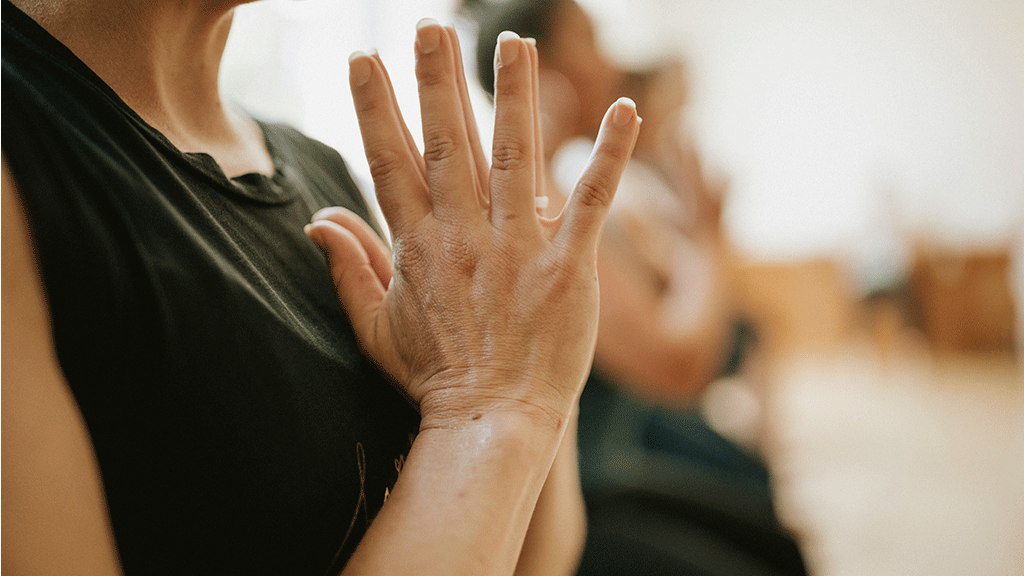
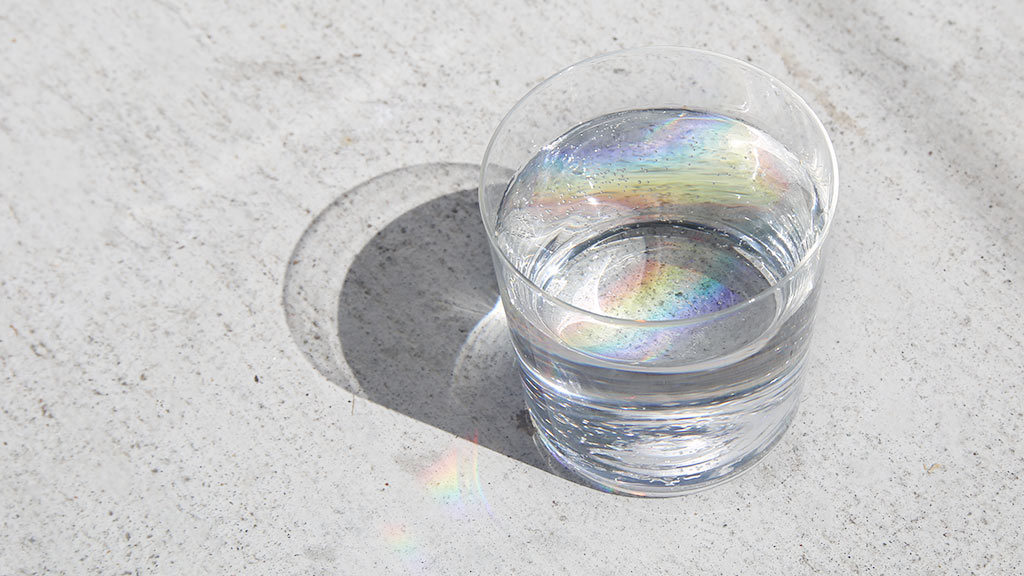
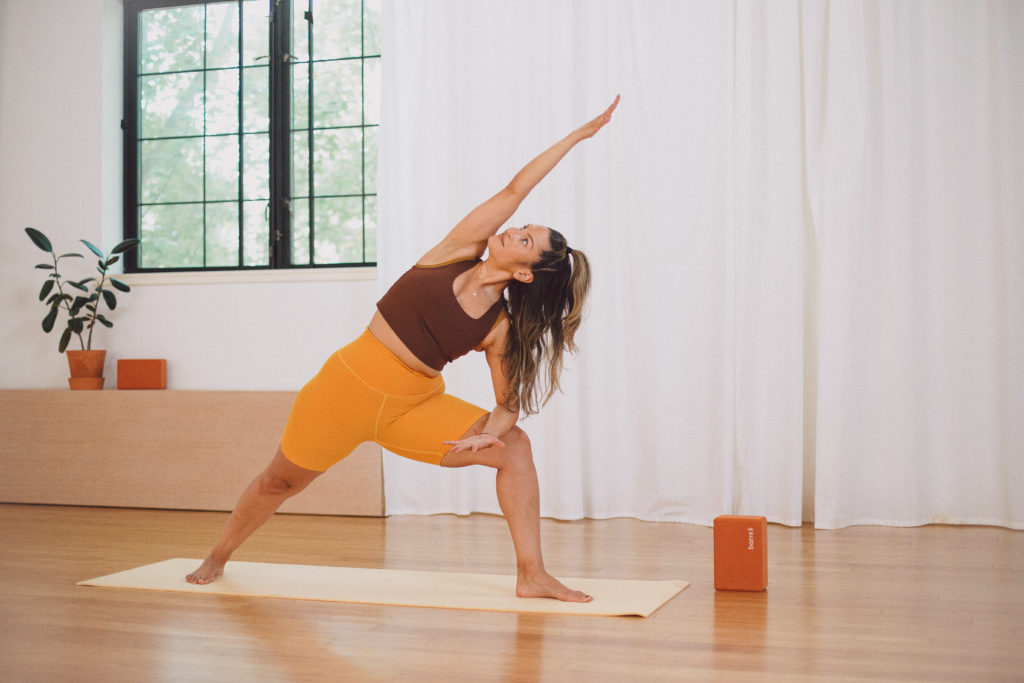
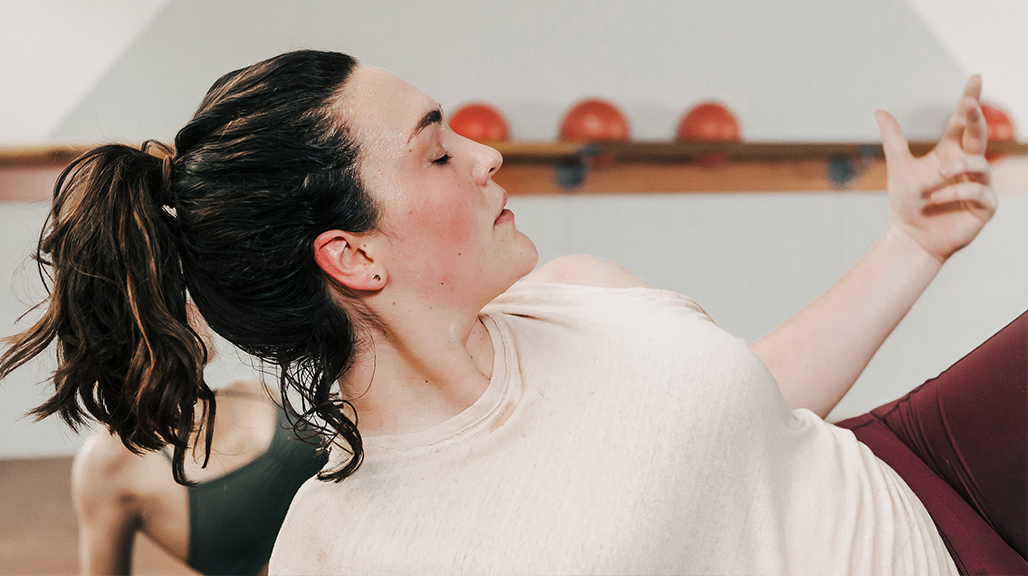
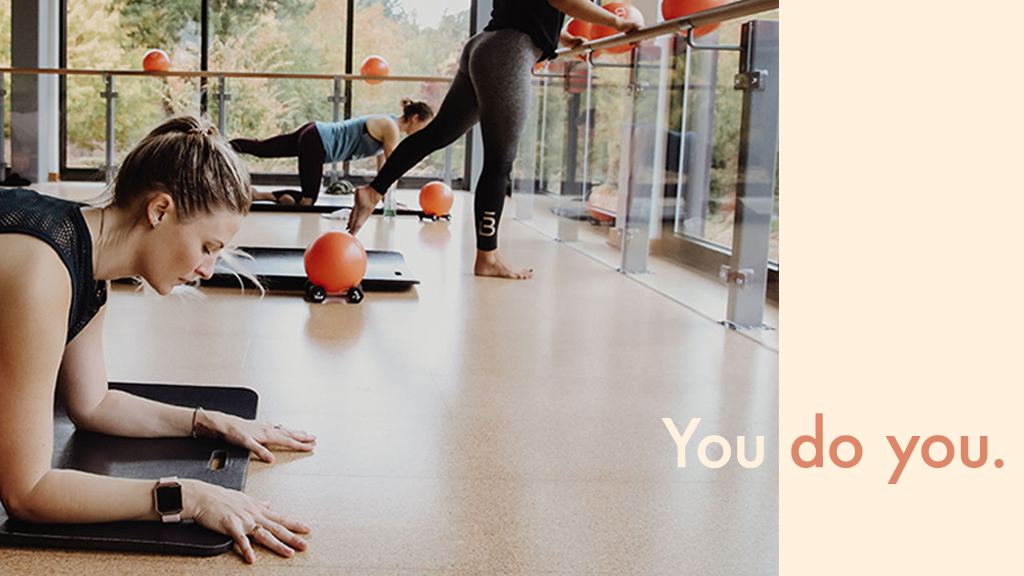



0 people have left a comment. Join the conversation!
View Comments